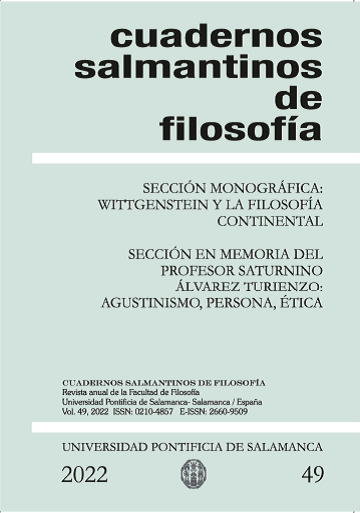Wittgenstein y el neopirronismo Metafilosofía, argumentos y persuasión
Contenido principal del artículo
El último texto de Wittgenstein, Sobre la certeza, no sólo se ha leído como la disolución del escepticismo cartesiano, sino como una propuesta de un nuevo escepticismo. Este “nuevo” escepticismo ha sido entendido por R. Fogelin (1976 [2002], 1981, 1994) como cercano al pirronismo de Sexto Empírico. Por ello, lo llamó neopirronismo. Para Fogelin, ambos autores comparten la estrategia epistemológica que supone que las creencias básicas del sentido común no
requieren ningún tipo de justificación pero tampoco se puede dudar de ellas. Mi propuesta es revisar esta interpretación epistemológica de la noción de neopirronismo a la luz de los aspectos metafilosóficos desarrollados por ambos autores. Estos aspectos ponen de manifiesto la forma no teórica y terapéutica de entender la filosofía, así como la capacidad persuasiva-argumentativa que comparten. Así, sugiero concebir el neopirronismo como metafilosofía y no como una clase de filosofía centrada en el problema del conocimiento o la justificación.

